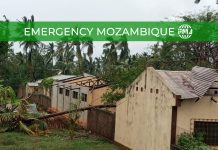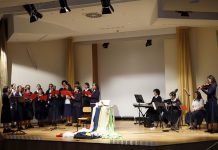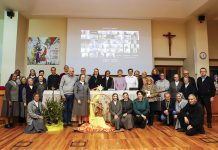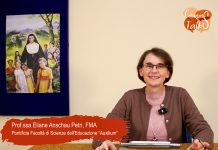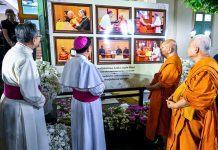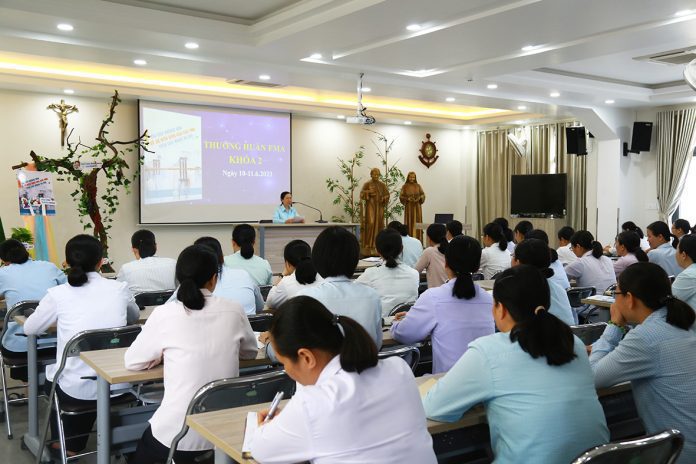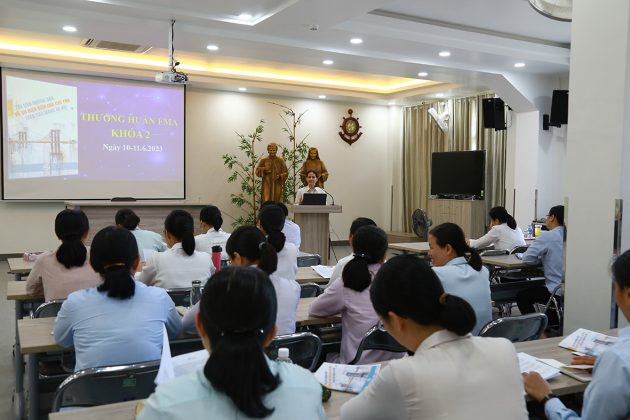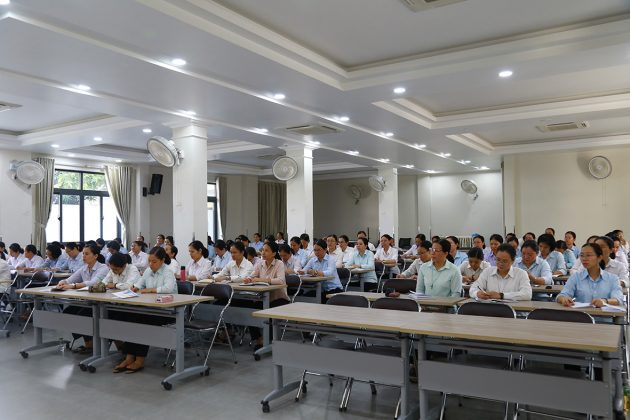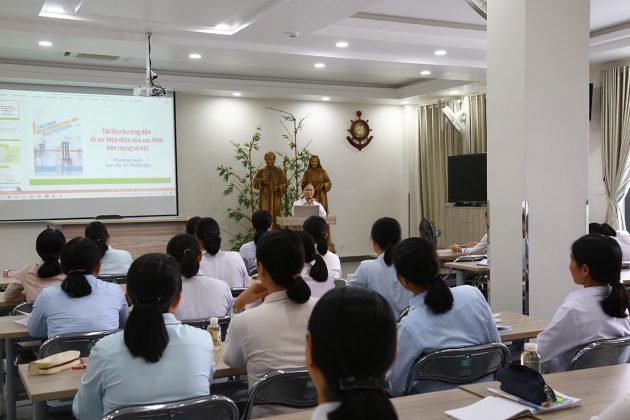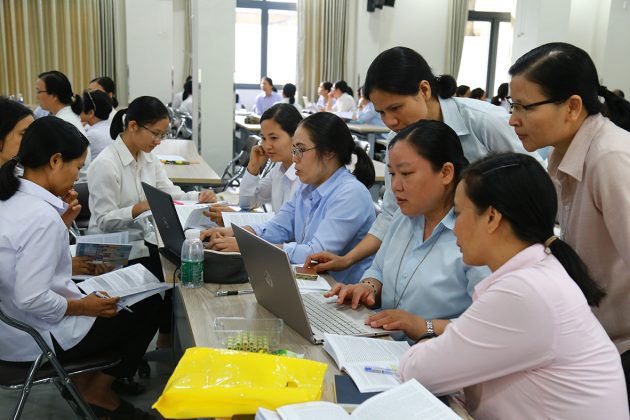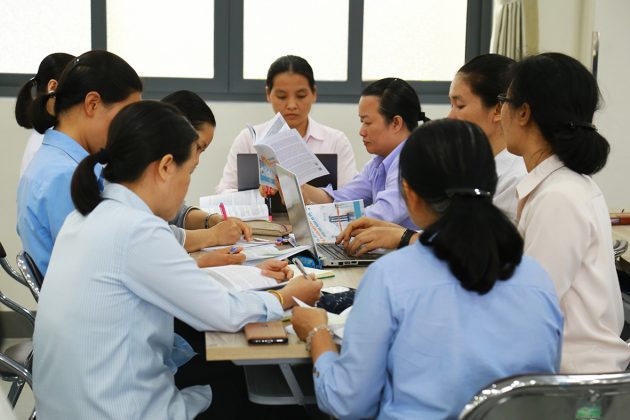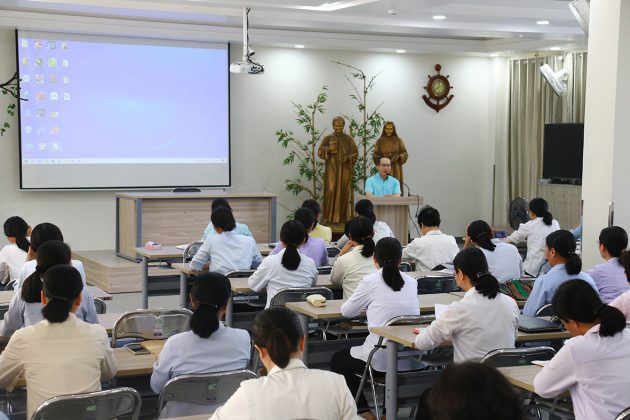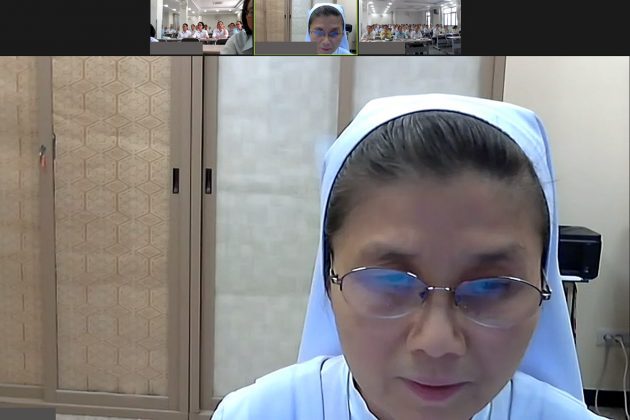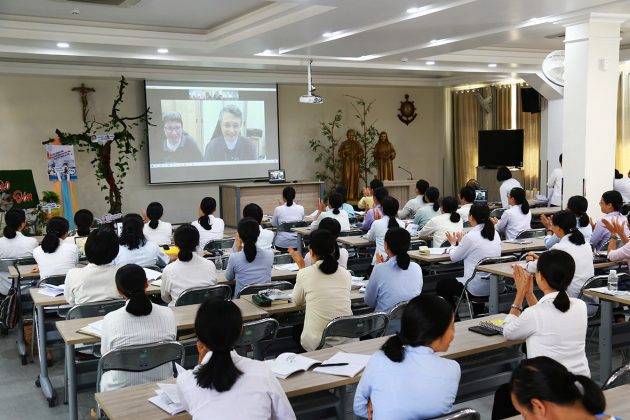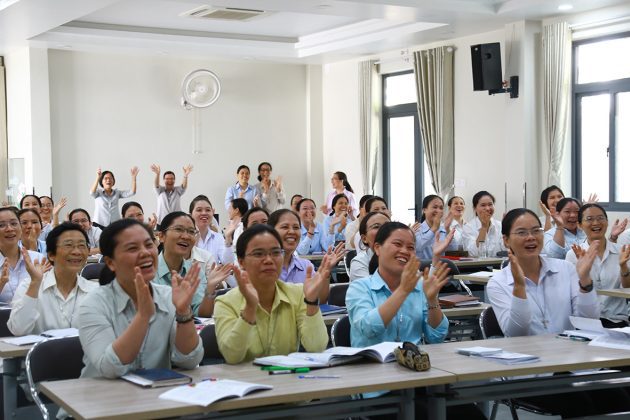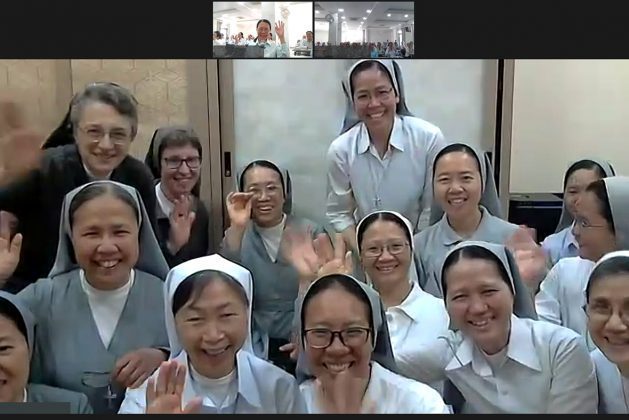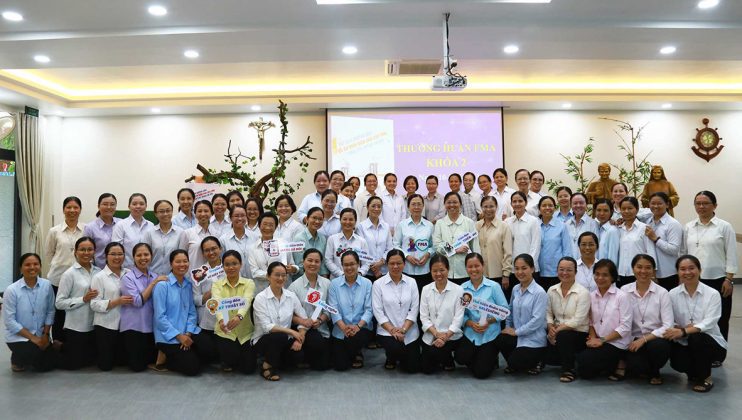Tam Ha (Vietnam). On 10 and 11 June 2023 in Tam Ha, at the headquarters of Mary Help of Christians Province (VTN), the formative meeting was held on the document “Guidelines on the presence of the FMA in social networks”, produced by the Sectors for Communication and for Formation of the Institute of the Daughters of Mary Help of Christians. It was the second of three annual formative meetings addressed to the FMA of the VTN Province, which this year focuses on communication, with awareness of the importance of the presence of consecrated women and educators in the digital world.
More than 80 FMA participated in this meeting organized by the Provincial Councilor and the Coordinator of Formation, Sr. Teresa Uong Thi Doan Trang, and by the Coordinator of Communication, Sr. Maria Nguyen Anh Thi, with the presence of the Provincial, Sr. Maria Hoang Thi Thu Ha, and of the Provincial Vicar, Sr. Maria Do Thi Tuyet Nhung.
On 10 June, after the opening prayer, the Provincial spoke of the importance of ongoing formation, a time for continuous formation and constant renewal. She reminded the sisters to pay attention and remember what they learn so it will be helpful to them and the young people. Finally, she introduced the contents based on the document, “Guidelines on the presence of the FMA in the social networks” with the aim of helping the FMA to make the Salesian educational charism current in contemporaneity.
Subsequently, Sr. Maria Nguyen Anh Thi presented the essential points of the preface by Mother Yvonne Reungoat, Mother General Emeritus of the FMA Institute. She underlined the intent of the Guidelines to form in responsibility for living in digital environments, to encourage a mentality of change and knowledge of the norms and dynamisms of digital environments, to open up and work in synergy to be present in the Social Networks as Salesian educators, to educate in digital citizenship according to Don Bosco’s purpose of forming “good Christians and honest citizens”.
In the first part of the document, “The contemporary communication scenario”, Sr. Maria Nguyen Anh Thi presented to the participants some of the achievements of the digital age, the opportunities and criticalities of digital culture, and some fundamental criteria drawn from the Apostolic Constitution Veritatis Gaudium of Pope Francis for a formation course that responds to the challenges of the present.
In the afternoon, Sr. Teresa Uong Thi Doan Trang presented the second part, “The Salesian charismatic communicative root”, and the third part, “The challenges and impacts of communication on formation”. She delved into the experience of St. John Bosco and St. Mary Domenica Mazzarello who were able to grasp the educational path for the integral formation of young people in the communicative aspect, leaving an indelible mark with a communication that has its foundation in the Incarnation and in the Communication of the Trinity.
The Coordinator spoke of how, in the contemporary context, the new media have brought both opportunities and challenges through which the FMA recognize a call from the Lord to be formed as religious, to know and study the documents of the Church, in addition to the theological, anthropological, charismatic, cultural, economic aspects … opening up with willingness to listen and dialogue. Furthermore, the digital environment is also a space to bring the Good News and to evangelize.
Subsequently, she accompanied the participants in group work based on specific contents and thoughts – feelings – actions. After the return of the groups, she summarized the main points and invited each one to be deeply rooted in Christ, reason, and deepest meaning of life, in full availability to the evangelizing mission among the young people.
The morning of the following day, the IT consultant, Mr. Dinh Duy Minh Nhat, presented the topic of information and network security in the use of e-mail and some accounts in social networks, helping to understand how to protect personal information and browse more safely and effectively.
In the afternoon, Sr. Clara Vu Minh Trang, Collaborator of the Communication Sector of the FMA Institute, in Zoom connection from Rome, presented the fourth and fifth parts of the document: “The mission of the FMA Institute in digital environments” and “Digital citizenship: duties and rights of the FMA”.
She explained that “In the digital age, the FMA do not ask themselves whether or not they should be present in digital environments, but how to be present.” She underlined the institutional responsibility, both personal and collective, in everything that is shared on social networks; the importance of knowing digital culture with its dynamics, opportunities, challenges, and its impact on life; the ability to discern what to communicate and how to communicate truth, goodness, beauty; the style and contents of communication for communion, to build communities and strengthen community relationships.
The FMA connected from Vietnam then had the joy of an online meeting with Sr. Ausilia De Siena, General Councilor for Communication, and Sr. Elisa Molinari, Collaborator of the Sector. Sr. Ausilia encouraged the Sisters to continue to study and put into practice what they have learned, living it every day, especially in the mission among young people. The Councilor also answered their questions, indicating how to build relationships through interpersonal communication.
Taking advantage of the opportunity, the Vietnamese Sisters who study and work in the Generalate were able to greet the participants in this formative meeting through the screen. Thanks to the media, although physically distant, they felt very close.
With a song, the participants expressed their gratitude to the Institute, to the Provincial, Sr. Maria Hoang Thi Thu Ha, to the men and women presenters, and to all the FMA ready to collaborate so that the proclamation of the Gospel on social networks is of benefit for the young and for the Sisters.


